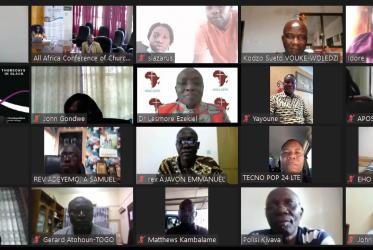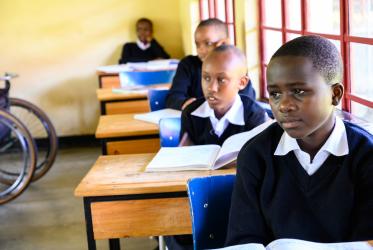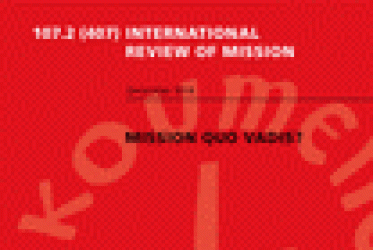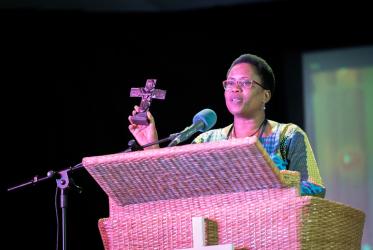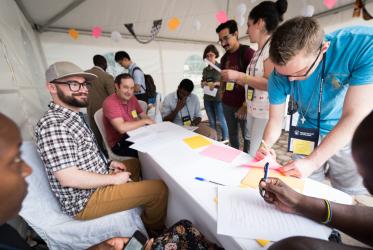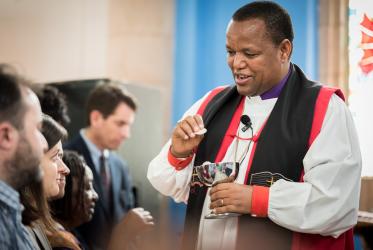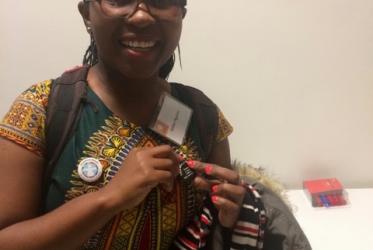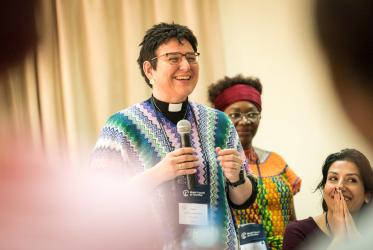Displaying 1 - 20 of 29
Young Africans are eager to grapple with challenges
09 January 2020
Moravian Church in Tanzania launches Thursdays in Black
10 September 2019
Mission and people with disabilities
26 June 2019
New issue: International Review of Mission
14 December 2018
“Sending service” closes Arusha conference
13 March 2018
‘Sokoni’ transforms marketplace into mission
13 March 2018
Arusha offers vibrant and colourful worship life
12 March 2018
Indigenous youth want their voices heard
08 March 2018
Women reflect on mission as foundation of life
07 March 2018
GETI students plant trees, in service for greener future
07 March 2018
